

SUBSCRIBE TO OUR FREE NEWSLETTER
Daily news & progressive opinion—funded by the people, not the corporations—delivered straight to your inbox.
5
#000000
#FFFFFF
To donate by check, phone, or other method, see our More Ways to Give page.


Daily news & progressive opinion—funded by the people, not the corporations—delivered straight to your inbox.

"Just like Trump's 'health care' bill is actually a $231 billion tax cut for the top 2 percent," explains Sen. Sanders, "his infrastructure plan would create $200 billion in new tax loopholes and other giveaways for wealthy investors, and it would reward corporations that have stashed their profits overseas with huge tax cuts."
Donald Trump's so-called infrastructure plan is a huge giveaway to Wall Street that fails to create the millions of jobs we need to modernize our roads, bridges, water systems, rail, airports, levees and dams.
Donald Trump's so-called infrastructure plan is a huge giveaway to Wall Street that fails to create the millions of jobs we need to modernize our roads, bridges, water systems, rail, airports, levees and dams.
At a time when the American Society of Civil Engineers says we need to spend $2 trillion above current spending levels just to get our infrastructure back to a state of good repair, Trump actually cuts direct federal spending on our crumbling infrastructure by nearly $145 billion over the next decade. This would force state and local governments to shoulder more of the financial burden for our infrastructure needs at a time when they can least afford it.
Just like Trump's "health care" bill is actually a $231 billion tax cut for the top 2 percent, his infrastructure plan would create $200 billion in new tax loopholes and other giveaways for wealthy investors, and it would reward corporations that have stashed their profits overseas with huge tax cuts.
Under Trump's proposal, billionaires on Wall Street, wealthy campaign contributors and even foreign governments would receive hundreds of billions in tax breaks to purchase our highways, airports, and water treatment plants. They would then be allowed to impose huge new tolls and fees on the backs of American commuters and homeowners.
The reality is that Trump's plan to sell off our nation's highways, bridges, and other vital infrastructure to Wall Street, private investors, and foreign governments is an old idea that does not work.
Trump's plan to rebuild America relies heavily on the use of public-private partnerships to finance infrastructure projects with private equity capital. Such financing, whether through private equity or traditional tax-exempt municipal bonds, is repaid by ordinary citizens through a combination of taxes and user fees. Private equity financing is markedly more expensive than traditional government financing, however -- by as much as three to six times. Considering the scale of infrastructure development under consideration, that difference could be enormous. For example: the charge for a $100 million-dollar investment using traditional government bond financing (at 3 percent, over 30 years) is about $90 million. For private equity capital, at a 15 percent return, the total skyrockets to $450 million.
For example, in Chicago, a private investor group led by Morgan Stanley will collect $11 billion as part of its 75-year contract to run the city's parking meters. Not only have they raised parking prices by as much as 800 percent in some neighborhoods but incredibly, the city has been forced to pay $31 million and counting to cover lost revenue whenever a street is temporarily closed for maintenance. Chicago is already struggling with high crime and unfunded teachers' pensions, yet it is diverting resources to pad the bottom line of these investors.
In Indiana, tolls on a privatized road more than doubled this month as commuters wait in long lines and visit unsanitary rest stops. In Bayonne, New Jersey, many homeowners are at risk of foreclosure because they cannot afford water bills that have spiked dramatically after the water system was taken over by a private equity firm. In Atlanta, after taking over the water system in 1999, the new private operators fired 400 workers and cut training for those who remained. The result? More water main failures, and water quality declined.
In California, Texas, and South Carolina, privately-owned toll roads went bankrupt or were foreclosed because of exaggerated projections from investors. Time and again, these private companies who take over public infrastructure showed they do not represent the public's best interests.
In addition to the obvious siphoning of public resources that Trump's tax breaks and private equity financing entail, his Administration has been pushing "asset recycling," i.e., selling off existing assets, like airports, bridges, and highway rest stops, to private investors and using the revenue ("recycling" it) to fund new facilities.
It is important to note, moreover, that weak investment in America's infrastructure is not due to lack of access to financing, but because of constraints associated with insufficient state and local government revenue. Trump's public-private partnership model does not address this problem, and in fact, exacerbates it by increasing overall costs to taxpayers. And because smaller-scale projects, like those in rural areas, may not be profitable enough to attract private equity investors, his model risks leaving many parts of the country behind.
But Donald Trump wants to hand over more critical public infrastructure to private investors who will squeeze profits from the American people by putting up new tolls and exorbitant users' fees. That would be unacceptable. We shouldn't be selling off public assets to billionaires to make huge profits on the backs of working people.
Trump's plan is the exact opposite of what we should be doing as a nation. Instead of creating more tax giveaways to corporate America and Wall Street, we should be eliminating tax loopholes that allow profitable corporations to stash their cash in offshore tax havens around the world. And we should be using this revenue to directly invest $1 trillion to modernize our nation's infrastructure -- a plan that would put 15 million Americans back to work in good-paying jobs.
Today, the United States spends less on infrastructure, as a percent of GDP, than at any time in the past twenty years. The reality is that every day, Americans drive to work on potholed roads and rundown bridges. They ride in overcrowded buses and subways, and journey through shabby airports. Children struggle to concentrate in dark, overcrowded classrooms; and in some parts of the country, their schools lack adequate heat and basic cleanliness. The structures that most Americans don't see are also in disrepair -- from spotty broadband and an outdated electric grid, to toxic drinking water and dilapidated levees and dams. This is what happens when a nation underfunds the physical infrastructure on which its people and economy depend. We need to be spending more on infrastructure, not less. And we should not be providing more tax breaks to fund risky privatization schemes.
The failure of privatization plans -- transferring control of public infrastructure to private interests -- that Trump would double down on can be seen across the country.
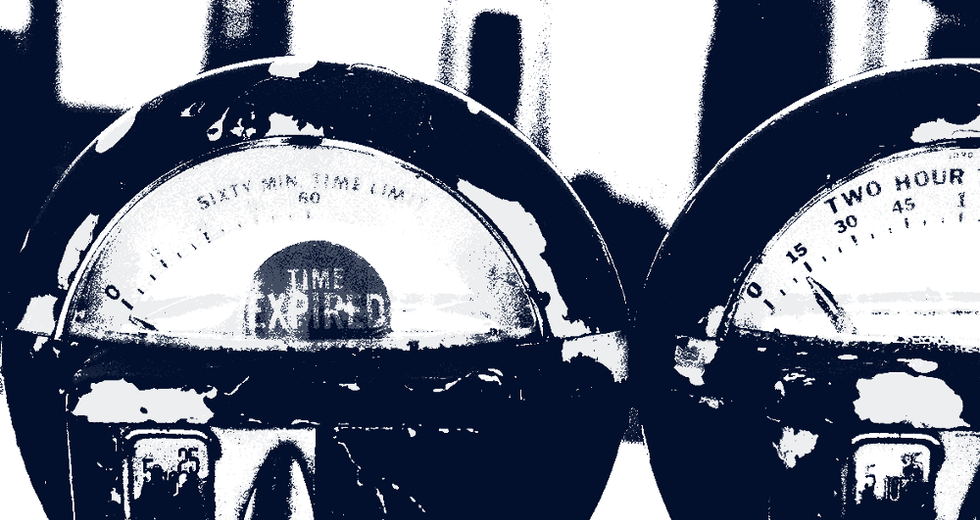
In 2008, the city of Chicago sold the right to manage the city's parking meters for 75 years to Morgan Stanley and its financial partners for $1.15 billion.
From 2009 to 2013, parking rates in Chicago increased by as much as 800 percent.
While working people in Chicago are paying more for parking, the Wall Street and foreign investors that own the parking meters are making enormous profits. Morgan Stanley and its investors will likely collect $11 billion from Chicago as part of this deal, all on the backs of its residents.
Even as Chicago runs yearly budget deficits over $100 million, they have been forced to pay Morgan Stanley $31 million to cover their lost revenue every time streets are closed in the city.
Because of this public-private partnership, not only are Chicagoans paying more to get to work, but taxpayers are on the hook for a bad deal that Wall Street will profit off of for decades.
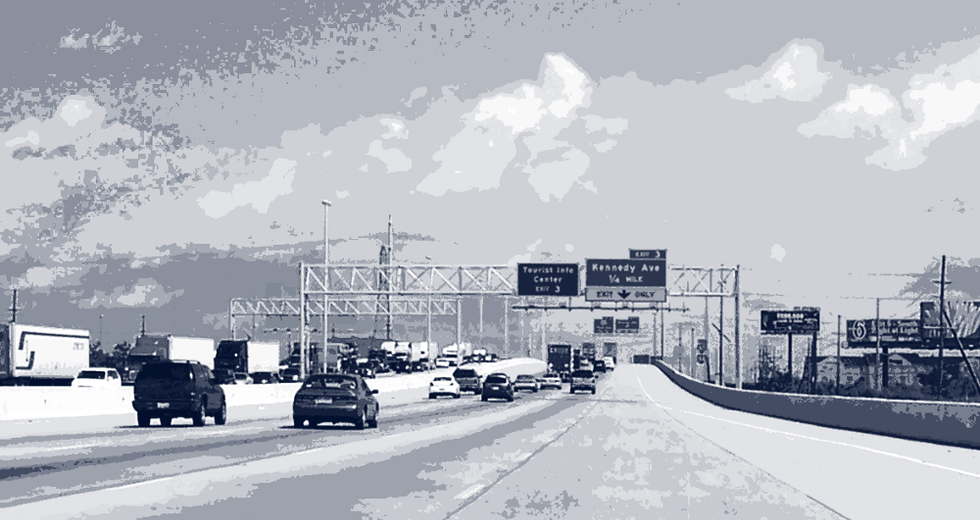
In 2006, Indiana signed a 75-year lease for a 175-mile highway for $3.8 billion with investors from Spain and Australia.
That company went bankrupt in 2014 partly because its risky financial deals left investors debt-ridden. That lease was then sold to Australian investors after the original investors went bankrupt in 2014.
While the debt held by this project increased by $2 billion before the bankruptcy, the Australian parent company is doing extraordinarily well. They reported record profits for the last fiscal year, and their CEO is among the highest paid in Australia.
This month, E-Z Pass drivers on the toll road saw their rates double when a state rebate program from the privatization deal expired. Since the road was privatized in 2006, all drivers of two-axle vehicles have seen the maximum toll rise from $4.65 to $9.70.
Today, the toll road is deteriorating, and travelers often wait in long lines at toll plazas, and use rest stops that are unsanitary.
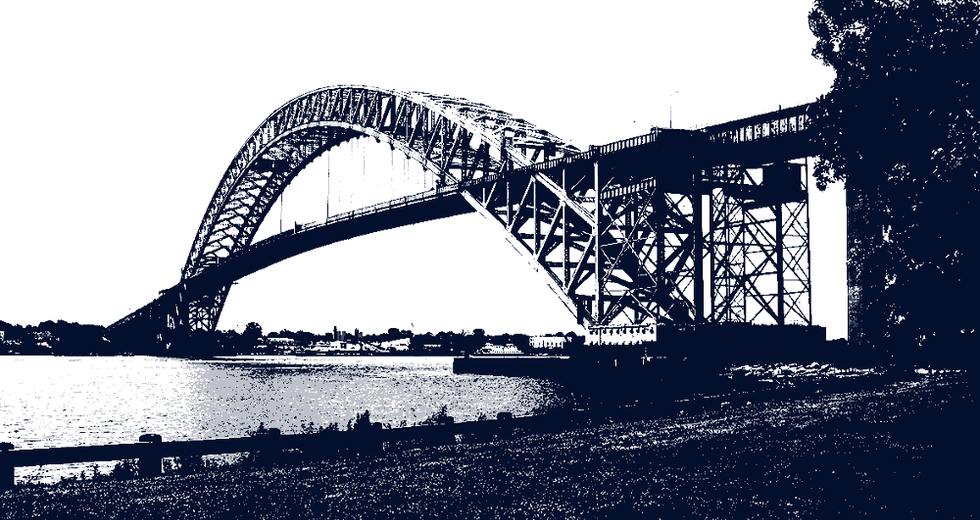
In 2012, Bayonne, NJ leased its municipal system to a multinational corporation and private equity firm in exchange for an up-front payment of $150 million.
For the residents of Bayonne, this deal has come with a significant cost. Water rates have skyrocketed nearly 28 percent since the system was leased to private interests. This is after the city told residents when negotiating the deal that rates would stay frozen for four years.
Bayonne residents are not able to afford these high rate increases, and the amount of government liens against properties increased from 200 in 2012 to 465 in 2015. People should not be at risk of losing their homes because a private company's profits were more important than the needs of consumers.
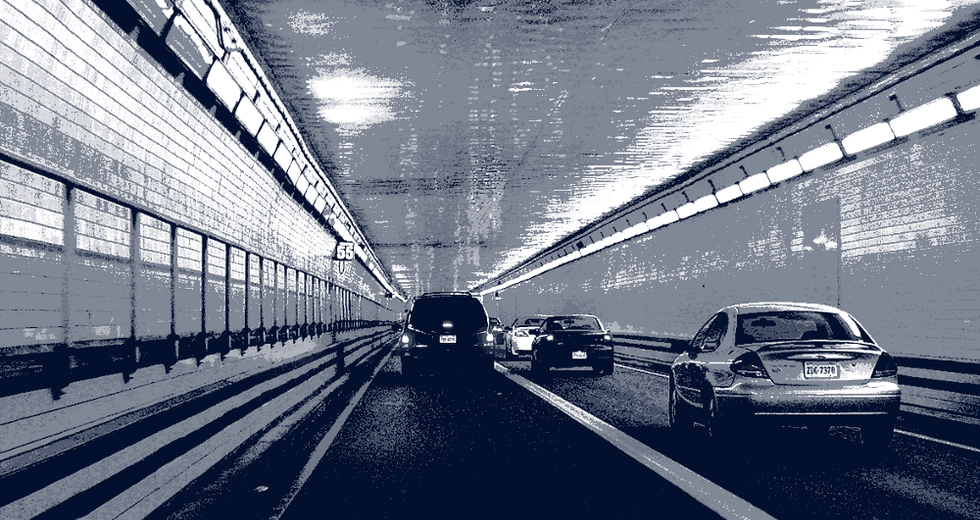
In 2011, Virginia signed a contact with a private consortium to expand and extend the Norfolk, Virginia Midtown Tunnel. In exchange, they allowed the private investors to receive toll profits from the tunnel for 58 years.
In addition to instituting new tolls on a road that had been free to use since the 1980s, the private operator created a predatory pricing scheme that caused some low-income drivers to rack up debts as high as $18,000 from the tolls. The pricing scheme charges higher rates and fees to non-E-Z Pass drivers, who are more likely to be low-income people who cannot afford to fill an E-Z Pass account.
Like similar P3 agreements, Virginia's contains a non-compete clause that will make it more difficult for the state to improve the tunnel and freeway, and ensures that the private investors make a healthy profit at the expense of working families.
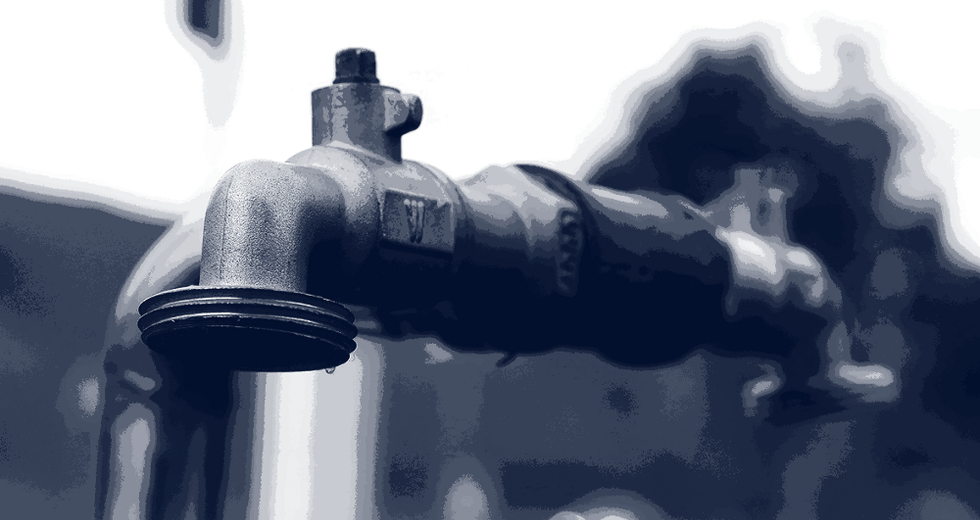
In 1998 the city of Atlanta signed an agreement for United Water, part of a French conglomerate, to operate their water system for twenty years.
After taking control of the system, United Water fired nearly 400 workers and dramatically reduced job training for its remaining employees tasked with keeping water safe for the people of Atlanta.
Water service in Atlanta suffered as United Water could not keep up with the system's maintenance needs. After United Water took over water-main breaks increased and the city needed to issue occasional "boil only" alerts when water wasn't drinkable out of the tap.
United Water is another example of a company that poorly managed our critical infrastructure, harming both taxpayers and workers in the process.
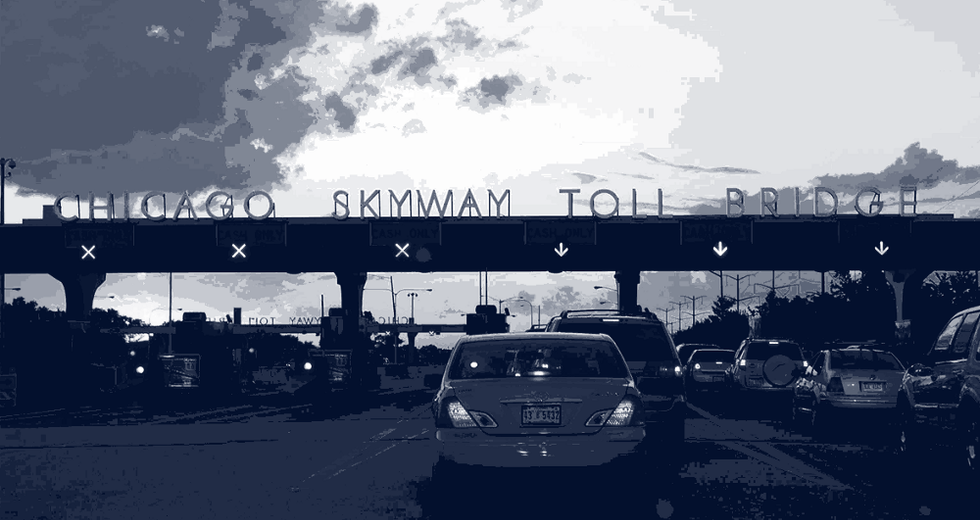
A Spanish and Australian investment consortium paid Chicago $1.83 billion to operated and collect tolls on the Chicago Skyway.
To cut costs, the private entity cut wages for its Skyway jobs from at least $20 an hour to as low as $12 an hour.
The agreement to operate the Skyway included ballooning interest rates, like many of the risky mortgages that caused the great recession.
After cutting ages for working people, these investors cashed out to another private entity less than 10 years into the 99-year lease, showing yet again that private entities running public infrastructure projects are only interested in their profits, not serving the public and treating their workers fairly. The majority owners of the Skyway project, the Spanish company Ferrovial, pocketed $269 million from the sale.
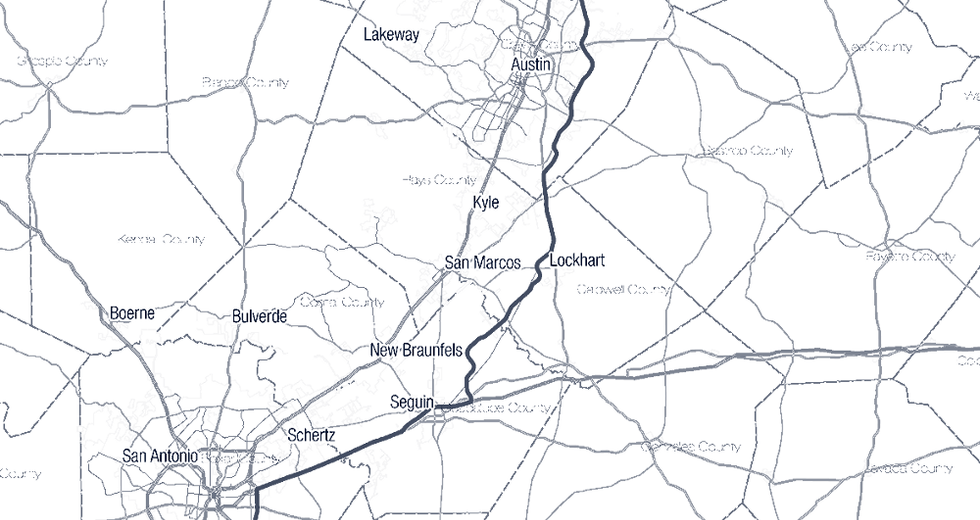
Texas contracted out the construction and operations of toll road State Highway 130 to a private company for $245 million in toll revenue.
During their ownership of the road, the private company was cited by the Texas Department of Transportation for poor road maintenance. In addition to problems resulting from the deteriorating road, the area around the toll road began to flood following its construction.
The private consortium that owned the project declared bankruptcy last year, while still owing the federal government $430 million from an infrastructure loan program. The toll road was taking in much lower revenue than expected because traffic was 70 percent lower than expected.
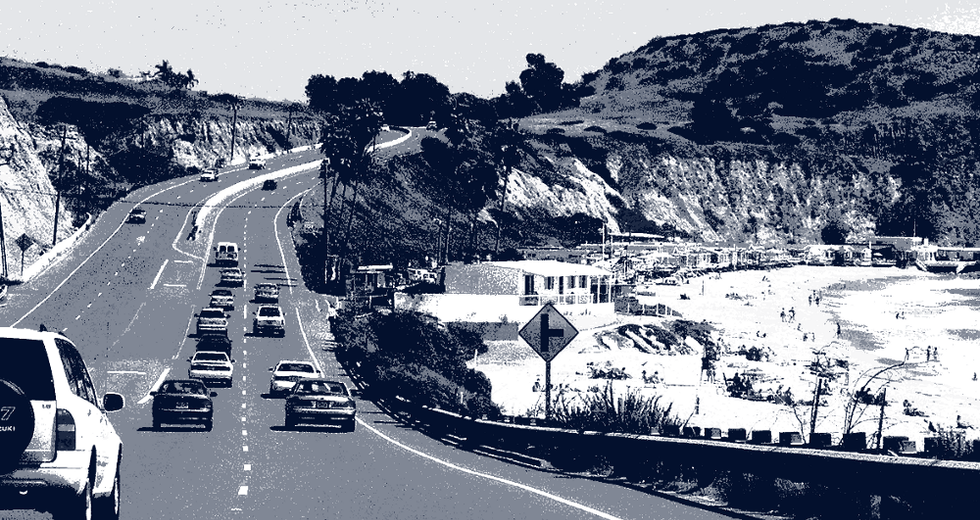
In 1995 California built express lanes on SR-91 in Orange County through mostly private dollars from three corporations.
Because of a non-compete clause in the agreement, California was unable to expand the roads to better serve commuters. Instead of looking out in the best interest of Orange Country residents, this deal made sure these corporations profited at their expense.
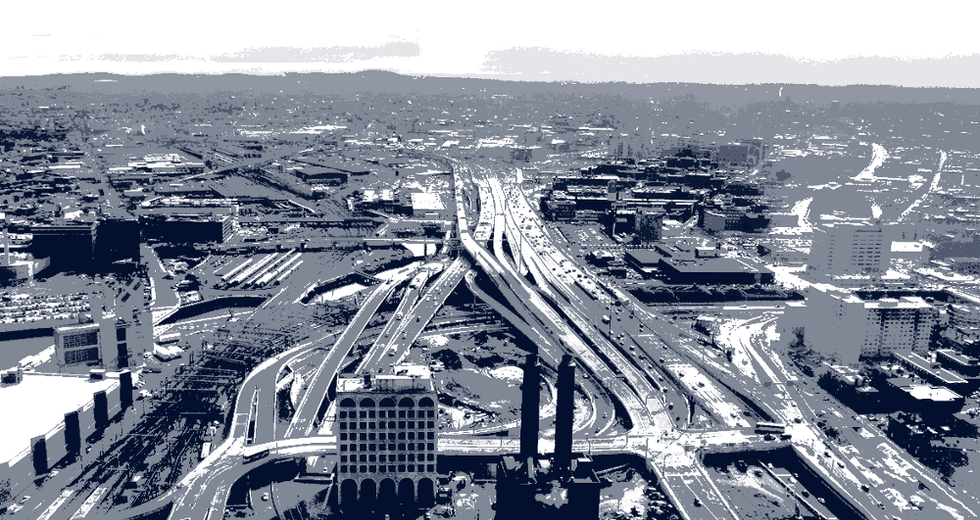
In 2003, a toll road owned by an Australian investment firm opened in Southern California. The project was touted as a successful TIFIA loan that demonstrated the benefit of public private partnerships.
However, seven years later the firm went bankrupt and imposed a 42% loss on the taxpayers from the TIFIA loan. Taxpayer dollars should not be put at risk so that private investment firms have a chance to profit on public infrastructure.
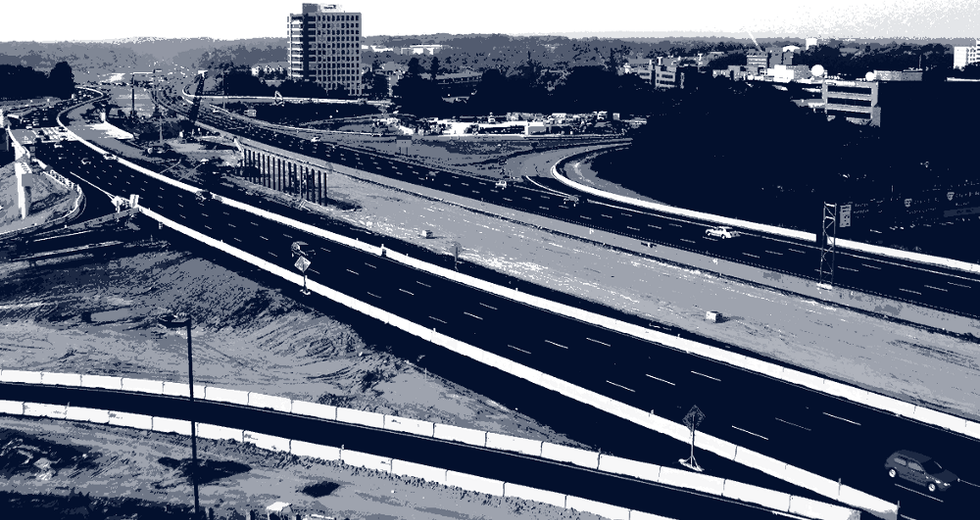
In Virginia, a private consortium constructed new High Occupancy Traffic lanes on Interstate 495 in exchange for toll revenue for the next 80 years
While reducing congestion and encouraging carpooling are worthy goals for this project, under the partnership Virginia taxpayers could pay this private consortium millions of dollars anytime carpoolers are over a quarter of the drivers on the road. This deal values the bottom line of its investors over the environment and the commute times of Virginia workers.
Trump and Musk are on an unconstitutional rampage, aiming for virtually every corner of the federal government. These two right-wing billionaires are targeting nurses, scientists, teachers, daycare providers, judges, veterans, air traffic controllers, and nuclear safety inspectors. No one is safe. The food stamps program, Social Security, Medicare, and Medicaid are next. It’s an unprecedented disaster and a five-alarm fire, but there will be a reckoning. The people did not vote for this. The American people do not want this dystopian hellscape that hides behind claims of “efficiency.” Still, in reality, it is all a giveaway to corporate interests and the libertarian dreams of far-right oligarchs like Musk. Common Dreams is playing a vital role by reporting day and night on this orgy of corruption and greed, as well as what everyday people can do to organize and fight back. As a people-powered nonprofit news outlet, we cover issues the corporate media never will, but we can only continue with our readers’ support. |
Donald Trump's so-called infrastructure plan is a huge giveaway to Wall Street that fails to create the millions of jobs we need to modernize our roads, bridges, water systems, rail, airports, levees and dams.
At a time when the American Society of Civil Engineers says we need to spend $2 trillion above current spending levels just to get our infrastructure back to a state of good repair, Trump actually cuts direct federal spending on our crumbling infrastructure by nearly $145 billion over the next decade. This would force state and local governments to shoulder more of the financial burden for our infrastructure needs at a time when they can least afford it.
Just like Trump's "health care" bill is actually a $231 billion tax cut for the top 2 percent, his infrastructure plan would create $200 billion in new tax loopholes and other giveaways for wealthy investors, and it would reward corporations that have stashed their profits overseas with huge tax cuts.
Under Trump's proposal, billionaires on Wall Street, wealthy campaign contributors and even foreign governments would receive hundreds of billions in tax breaks to purchase our highways, airports, and water treatment plants. They would then be allowed to impose huge new tolls and fees on the backs of American commuters and homeowners.
The reality is that Trump's plan to sell off our nation's highways, bridges, and other vital infrastructure to Wall Street, private investors, and foreign governments is an old idea that does not work.
Trump's plan to rebuild America relies heavily on the use of public-private partnerships to finance infrastructure projects with private equity capital. Such financing, whether through private equity or traditional tax-exempt municipal bonds, is repaid by ordinary citizens through a combination of taxes and user fees. Private equity financing is markedly more expensive than traditional government financing, however -- by as much as three to six times. Considering the scale of infrastructure development under consideration, that difference could be enormous. For example: the charge for a $100 million-dollar investment using traditional government bond financing (at 3 percent, over 30 years) is about $90 million. For private equity capital, at a 15 percent return, the total skyrockets to $450 million.
For example, in Chicago, a private investor group led by Morgan Stanley will collect $11 billion as part of its 75-year contract to run the city's parking meters. Not only have they raised parking prices by as much as 800 percent in some neighborhoods but incredibly, the city has been forced to pay $31 million and counting to cover lost revenue whenever a street is temporarily closed for maintenance. Chicago is already struggling with high crime and unfunded teachers' pensions, yet it is diverting resources to pad the bottom line of these investors.
In Indiana, tolls on a privatized road more than doubled this month as commuters wait in long lines and visit unsanitary rest stops. In Bayonne, New Jersey, many homeowners are at risk of foreclosure because they cannot afford water bills that have spiked dramatically after the water system was taken over by a private equity firm. In Atlanta, after taking over the water system in 1999, the new private operators fired 400 workers and cut training for those who remained. The result? More water main failures, and water quality declined.
In California, Texas, and South Carolina, privately-owned toll roads went bankrupt or were foreclosed because of exaggerated projections from investors. Time and again, these private companies who take over public infrastructure showed they do not represent the public's best interests.
In addition to the obvious siphoning of public resources that Trump's tax breaks and private equity financing entail, his Administration has been pushing "asset recycling," i.e., selling off existing assets, like airports, bridges, and highway rest stops, to private investors and using the revenue ("recycling" it) to fund new facilities.
It is important to note, moreover, that weak investment in America's infrastructure is not due to lack of access to financing, but because of constraints associated with insufficient state and local government revenue. Trump's public-private partnership model does not address this problem, and in fact, exacerbates it by increasing overall costs to taxpayers. And because smaller-scale projects, like those in rural areas, may not be profitable enough to attract private equity investors, his model risks leaving many parts of the country behind.
But Donald Trump wants to hand over more critical public infrastructure to private investors who will squeeze profits from the American people by putting up new tolls and exorbitant users' fees. That would be unacceptable. We shouldn't be selling off public assets to billionaires to make huge profits on the backs of working people.
Trump's plan is the exact opposite of what we should be doing as a nation. Instead of creating more tax giveaways to corporate America and Wall Street, we should be eliminating tax loopholes that allow profitable corporations to stash their cash in offshore tax havens around the world. And we should be using this revenue to directly invest $1 trillion to modernize our nation's infrastructure -- a plan that would put 15 million Americans back to work in good-paying jobs.
Today, the United States spends less on infrastructure, as a percent of GDP, than at any time in the past twenty years. The reality is that every day, Americans drive to work on potholed roads and rundown bridges. They ride in overcrowded buses and subways, and journey through shabby airports. Children struggle to concentrate in dark, overcrowded classrooms; and in some parts of the country, their schools lack adequate heat and basic cleanliness. The structures that most Americans don't see are also in disrepair -- from spotty broadband and an outdated electric grid, to toxic drinking water and dilapidated levees and dams. This is what happens when a nation underfunds the physical infrastructure on which its people and economy depend. We need to be spending more on infrastructure, not less. And we should not be providing more tax breaks to fund risky privatization schemes.
The failure of privatization plans -- transferring control of public infrastructure to private interests -- that Trump would double down on can be seen across the country.

In 2008, the city of Chicago sold the right to manage the city's parking meters for 75 years to Morgan Stanley and its financial partners for $1.15 billion.
From 2009 to 2013, parking rates in Chicago increased by as much as 800 percent.
While working people in Chicago are paying more for parking, the Wall Street and foreign investors that own the parking meters are making enormous profits. Morgan Stanley and its investors will likely collect $11 billion from Chicago as part of this deal, all on the backs of its residents.
Even as Chicago runs yearly budget deficits over $100 million, they have been forced to pay Morgan Stanley $31 million to cover their lost revenue every time streets are closed in the city.
Because of this public-private partnership, not only are Chicagoans paying more to get to work, but taxpayers are on the hook for a bad deal that Wall Street will profit off of for decades.

In 2006, Indiana signed a 75-year lease for a 175-mile highway for $3.8 billion with investors from Spain and Australia.
That company went bankrupt in 2014 partly because its risky financial deals left investors debt-ridden. That lease was then sold to Australian investors after the original investors went bankrupt in 2014.
While the debt held by this project increased by $2 billion before the bankruptcy, the Australian parent company is doing extraordinarily well. They reported record profits for the last fiscal year, and their CEO is among the highest paid in Australia.
This month, E-Z Pass drivers on the toll road saw their rates double when a state rebate program from the privatization deal expired. Since the road was privatized in 2006, all drivers of two-axle vehicles have seen the maximum toll rise from $4.65 to $9.70.
Today, the toll road is deteriorating, and travelers often wait in long lines at toll plazas, and use rest stops that are unsanitary.

In 2012, Bayonne, NJ leased its municipal system to a multinational corporation and private equity firm in exchange for an up-front payment of $150 million.
For the residents of Bayonne, this deal has come with a significant cost. Water rates have skyrocketed nearly 28 percent since the system was leased to private interests. This is after the city told residents when negotiating the deal that rates would stay frozen for four years.
Bayonne residents are not able to afford these high rate increases, and the amount of government liens against properties increased from 200 in 2012 to 465 in 2015. People should not be at risk of losing their homes because a private company's profits were more important than the needs of consumers.

In 2011, Virginia signed a contact with a private consortium to expand and extend the Norfolk, Virginia Midtown Tunnel. In exchange, they allowed the private investors to receive toll profits from the tunnel for 58 years.
In addition to instituting new tolls on a road that had been free to use since the 1980s, the private operator created a predatory pricing scheme that caused some low-income drivers to rack up debts as high as $18,000 from the tolls. The pricing scheme charges higher rates and fees to non-E-Z Pass drivers, who are more likely to be low-income people who cannot afford to fill an E-Z Pass account.
Like similar P3 agreements, Virginia's contains a non-compete clause that will make it more difficult for the state to improve the tunnel and freeway, and ensures that the private investors make a healthy profit at the expense of working families.

In 1998 the city of Atlanta signed an agreement for United Water, part of a French conglomerate, to operate their water system for twenty years.
After taking control of the system, United Water fired nearly 400 workers and dramatically reduced job training for its remaining employees tasked with keeping water safe for the people of Atlanta.
Water service in Atlanta suffered as United Water could not keep up with the system's maintenance needs. After United Water took over water-main breaks increased and the city needed to issue occasional "boil only" alerts when water wasn't drinkable out of the tap.
United Water is another example of a company that poorly managed our critical infrastructure, harming both taxpayers and workers in the process.

A Spanish and Australian investment consortium paid Chicago $1.83 billion to operated and collect tolls on the Chicago Skyway.
To cut costs, the private entity cut wages for its Skyway jobs from at least $20 an hour to as low as $12 an hour.
The agreement to operate the Skyway included ballooning interest rates, like many of the risky mortgages that caused the great recession.
After cutting ages for working people, these investors cashed out to another private entity less than 10 years into the 99-year lease, showing yet again that private entities running public infrastructure projects are only interested in their profits, not serving the public and treating their workers fairly. The majority owners of the Skyway project, the Spanish company Ferrovial, pocketed $269 million from the sale.

Texas contracted out the construction and operations of toll road State Highway 130 to a private company for $245 million in toll revenue.
During their ownership of the road, the private company was cited by the Texas Department of Transportation for poor road maintenance. In addition to problems resulting from the deteriorating road, the area around the toll road began to flood following its construction.
The private consortium that owned the project declared bankruptcy last year, while still owing the federal government $430 million from an infrastructure loan program. The toll road was taking in much lower revenue than expected because traffic was 70 percent lower than expected.

In 1995 California built express lanes on SR-91 in Orange County through mostly private dollars from three corporations.
Because of a non-compete clause in the agreement, California was unable to expand the roads to better serve commuters. Instead of looking out in the best interest of Orange Country residents, this deal made sure these corporations profited at their expense.

In 2003, a toll road owned by an Australian investment firm opened in Southern California. The project was touted as a successful TIFIA loan that demonstrated the benefit of public private partnerships.
However, seven years later the firm went bankrupt and imposed a 42% loss on the taxpayers from the TIFIA loan. Taxpayer dollars should not be put at risk so that private investment firms have a chance to profit on public infrastructure.

In Virginia, a private consortium constructed new High Occupancy Traffic lanes on Interstate 495 in exchange for toll revenue for the next 80 years
While reducing congestion and encouraging carpooling are worthy goals for this project, under the partnership Virginia taxpayers could pay this private consortium millions of dollars anytime carpoolers are over a quarter of the drivers on the road. This deal values the bottom line of its investors over the environment and the commute times of Virginia workers.
Donald Trump's so-called infrastructure plan is a huge giveaway to Wall Street that fails to create the millions of jobs we need to modernize our roads, bridges, water systems, rail, airports, levees and dams.
At a time when the American Society of Civil Engineers says we need to spend $2 trillion above current spending levels just to get our infrastructure back to a state of good repair, Trump actually cuts direct federal spending on our crumbling infrastructure by nearly $145 billion over the next decade. This would force state and local governments to shoulder more of the financial burden for our infrastructure needs at a time when they can least afford it.
Just like Trump's "health care" bill is actually a $231 billion tax cut for the top 2 percent, his infrastructure plan would create $200 billion in new tax loopholes and other giveaways for wealthy investors, and it would reward corporations that have stashed their profits overseas with huge tax cuts.
Under Trump's proposal, billionaires on Wall Street, wealthy campaign contributors and even foreign governments would receive hundreds of billions in tax breaks to purchase our highways, airports, and water treatment plants. They would then be allowed to impose huge new tolls and fees on the backs of American commuters and homeowners.
The reality is that Trump's plan to sell off our nation's highways, bridges, and other vital infrastructure to Wall Street, private investors, and foreign governments is an old idea that does not work.
Trump's plan to rebuild America relies heavily on the use of public-private partnerships to finance infrastructure projects with private equity capital. Such financing, whether through private equity or traditional tax-exempt municipal bonds, is repaid by ordinary citizens through a combination of taxes and user fees. Private equity financing is markedly more expensive than traditional government financing, however -- by as much as three to six times. Considering the scale of infrastructure development under consideration, that difference could be enormous. For example: the charge for a $100 million-dollar investment using traditional government bond financing (at 3 percent, over 30 years) is about $90 million. For private equity capital, at a 15 percent return, the total skyrockets to $450 million.
For example, in Chicago, a private investor group led by Morgan Stanley will collect $11 billion as part of its 75-year contract to run the city's parking meters. Not only have they raised parking prices by as much as 800 percent in some neighborhoods but incredibly, the city has been forced to pay $31 million and counting to cover lost revenue whenever a street is temporarily closed for maintenance. Chicago is already struggling with high crime and unfunded teachers' pensions, yet it is diverting resources to pad the bottom line of these investors.
In Indiana, tolls on a privatized road more than doubled this month as commuters wait in long lines and visit unsanitary rest stops. In Bayonne, New Jersey, many homeowners are at risk of foreclosure because they cannot afford water bills that have spiked dramatically after the water system was taken over by a private equity firm. In Atlanta, after taking over the water system in 1999, the new private operators fired 400 workers and cut training for those who remained. The result? More water main failures, and water quality declined.
In California, Texas, and South Carolina, privately-owned toll roads went bankrupt or were foreclosed because of exaggerated projections from investors. Time and again, these private companies who take over public infrastructure showed they do not represent the public's best interests.
In addition to the obvious siphoning of public resources that Trump's tax breaks and private equity financing entail, his Administration has been pushing "asset recycling," i.e., selling off existing assets, like airports, bridges, and highway rest stops, to private investors and using the revenue ("recycling" it) to fund new facilities.
It is important to note, moreover, that weak investment in America's infrastructure is not due to lack of access to financing, but because of constraints associated with insufficient state and local government revenue. Trump's public-private partnership model does not address this problem, and in fact, exacerbates it by increasing overall costs to taxpayers. And because smaller-scale projects, like those in rural areas, may not be profitable enough to attract private equity investors, his model risks leaving many parts of the country behind.
But Donald Trump wants to hand over more critical public infrastructure to private investors who will squeeze profits from the American people by putting up new tolls and exorbitant users' fees. That would be unacceptable. We shouldn't be selling off public assets to billionaires to make huge profits on the backs of working people.
Trump's plan is the exact opposite of what we should be doing as a nation. Instead of creating more tax giveaways to corporate America and Wall Street, we should be eliminating tax loopholes that allow profitable corporations to stash their cash in offshore tax havens around the world. And we should be using this revenue to directly invest $1 trillion to modernize our nation's infrastructure -- a plan that would put 15 million Americans back to work in good-paying jobs.
Today, the United States spends less on infrastructure, as a percent of GDP, than at any time in the past twenty years. The reality is that every day, Americans drive to work on potholed roads and rundown bridges. They ride in overcrowded buses and subways, and journey through shabby airports. Children struggle to concentrate in dark, overcrowded classrooms; and in some parts of the country, their schools lack adequate heat and basic cleanliness. The structures that most Americans don't see are also in disrepair -- from spotty broadband and an outdated electric grid, to toxic drinking water and dilapidated levees and dams. This is what happens when a nation underfunds the physical infrastructure on which its people and economy depend. We need to be spending more on infrastructure, not less. And we should not be providing more tax breaks to fund risky privatization schemes.
The failure of privatization plans -- transferring control of public infrastructure to private interests -- that Trump would double down on can be seen across the country.

In 2008, the city of Chicago sold the right to manage the city's parking meters for 75 years to Morgan Stanley and its financial partners for $1.15 billion.
From 2009 to 2013, parking rates in Chicago increased by as much as 800 percent.
While working people in Chicago are paying more for parking, the Wall Street and foreign investors that own the parking meters are making enormous profits. Morgan Stanley and its investors will likely collect $11 billion from Chicago as part of this deal, all on the backs of its residents.
Even as Chicago runs yearly budget deficits over $100 million, they have been forced to pay Morgan Stanley $31 million to cover their lost revenue every time streets are closed in the city.
Because of this public-private partnership, not only are Chicagoans paying more to get to work, but taxpayers are on the hook for a bad deal that Wall Street will profit off of for decades.

In 2006, Indiana signed a 75-year lease for a 175-mile highway for $3.8 billion with investors from Spain and Australia.
That company went bankrupt in 2014 partly because its risky financial deals left investors debt-ridden. That lease was then sold to Australian investors after the original investors went bankrupt in 2014.
While the debt held by this project increased by $2 billion before the bankruptcy, the Australian parent company is doing extraordinarily well. They reported record profits for the last fiscal year, and their CEO is among the highest paid in Australia.
This month, E-Z Pass drivers on the toll road saw their rates double when a state rebate program from the privatization deal expired. Since the road was privatized in 2006, all drivers of two-axle vehicles have seen the maximum toll rise from $4.65 to $9.70.
Today, the toll road is deteriorating, and travelers often wait in long lines at toll plazas, and use rest stops that are unsanitary.

In 2012, Bayonne, NJ leased its municipal system to a multinational corporation and private equity firm in exchange for an up-front payment of $150 million.
For the residents of Bayonne, this deal has come with a significant cost. Water rates have skyrocketed nearly 28 percent since the system was leased to private interests. This is after the city told residents when negotiating the deal that rates would stay frozen for four years.
Bayonne residents are not able to afford these high rate increases, and the amount of government liens against properties increased from 200 in 2012 to 465 in 2015. People should not be at risk of losing their homes because a private company's profits were more important than the needs of consumers.

In 2011, Virginia signed a contact with a private consortium to expand and extend the Norfolk, Virginia Midtown Tunnel. In exchange, they allowed the private investors to receive toll profits from the tunnel for 58 years.
In addition to instituting new tolls on a road that had been free to use since the 1980s, the private operator created a predatory pricing scheme that caused some low-income drivers to rack up debts as high as $18,000 from the tolls. The pricing scheme charges higher rates and fees to non-E-Z Pass drivers, who are more likely to be low-income people who cannot afford to fill an E-Z Pass account.
Like similar P3 agreements, Virginia's contains a non-compete clause that will make it more difficult for the state to improve the tunnel and freeway, and ensures that the private investors make a healthy profit at the expense of working families.

In 1998 the city of Atlanta signed an agreement for United Water, part of a French conglomerate, to operate their water system for twenty years.
After taking control of the system, United Water fired nearly 400 workers and dramatically reduced job training for its remaining employees tasked with keeping water safe for the people of Atlanta.
Water service in Atlanta suffered as United Water could not keep up with the system's maintenance needs. After United Water took over water-main breaks increased and the city needed to issue occasional "boil only" alerts when water wasn't drinkable out of the tap.
United Water is another example of a company that poorly managed our critical infrastructure, harming both taxpayers and workers in the process.

A Spanish and Australian investment consortium paid Chicago $1.83 billion to operated and collect tolls on the Chicago Skyway.
To cut costs, the private entity cut wages for its Skyway jobs from at least $20 an hour to as low as $12 an hour.
The agreement to operate the Skyway included ballooning interest rates, like many of the risky mortgages that caused the great recession.
After cutting ages for working people, these investors cashed out to another private entity less than 10 years into the 99-year lease, showing yet again that private entities running public infrastructure projects are only interested in their profits, not serving the public and treating their workers fairly. The majority owners of the Skyway project, the Spanish company Ferrovial, pocketed $269 million from the sale.

Texas contracted out the construction and operations of toll road State Highway 130 to a private company for $245 million in toll revenue.
During their ownership of the road, the private company was cited by the Texas Department of Transportation for poor road maintenance. In addition to problems resulting from the deteriorating road, the area around the toll road began to flood following its construction.
The private consortium that owned the project declared bankruptcy last year, while still owing the federal government $430 million from an infrastructure loan program. The toll road was taking in much lower revenue than expected because traffic was 70 percent lower than expected.

In 1995 California built express lanes on SR-91 in Orange County through mostly private dollars from three corporations.
Because of a non-compete clause in the agreement, California was unable to expand the roads to better serve commuters. Instead of looking out in the best interest of Orange Country residents, this deal made sure these corporations profited at their expense.

In 2003, a toll road owned by an Australian investment firm opened in Southern California. The project was touted as a successful TIFIA loan that demonstrated the benefit of public private partnerships.
However, seven years later the firm went bankrupt and imposed a 42% loss on the taxpayers from the TIFIA loan. Taxpayer dollars should not be put at risk so that private investment firms have a chance to profit on public infrastructure.

In Virginia, a private consortium constructed new High Occupancy Traffic lanes on Interstate 495 in exchange for toll revenue for the next 80 years
While reducing congestion and encouraging carpooling are worthy goals for this project, under the partnership Virginia taxpayers could pay this private consortium millions of dollars anytime carpoolers are over a quarter of the drivers on the road. This deal values the bottom line of its investors over the environment and the commute times of Virginia workers.